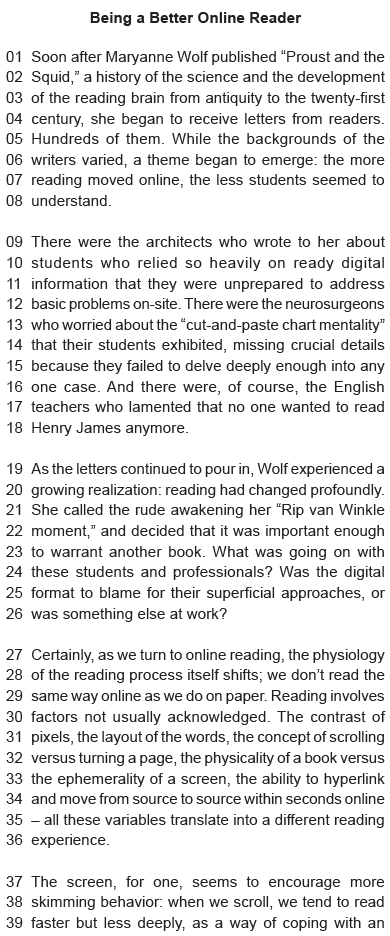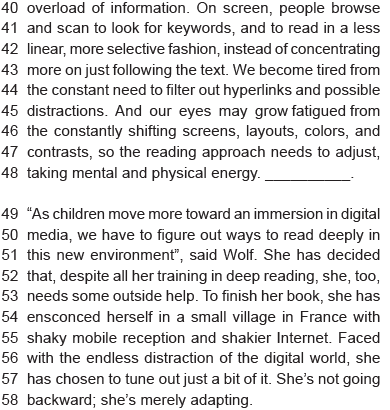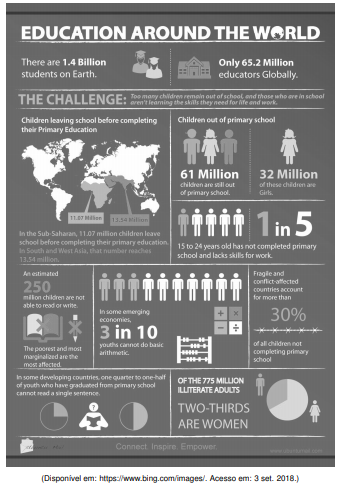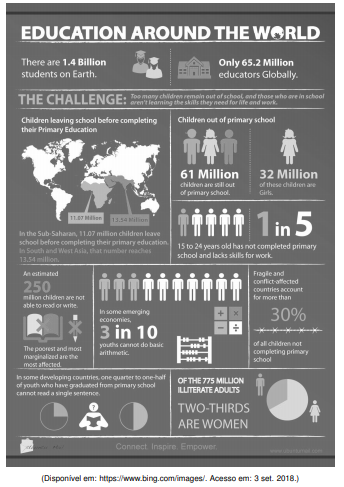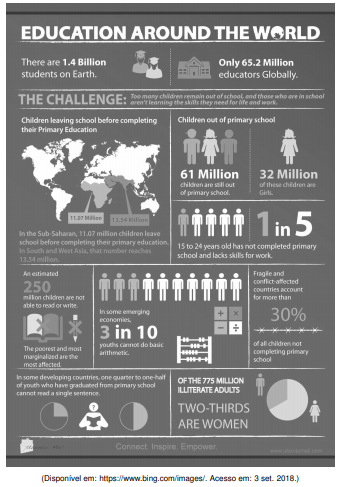cód. #10338
UENP Concursos - Inglês - 2018 - Vestibular - 1º Dia
Leia o texto a seguir e responda à questão.
’Hitting women isn’t normal’: tackling male violence in Brazil
A rehabilitation programme for violent men in Espírito Santo is cutting reoffending rates In the state of Espírito Santo, violence against women is rampant. From 2005 to 2012, the state had the highest rate of murders of women in the country. In the years since, it has been in the top five. Nationwide, almost a third of girls and women said in a 2017 survey that they had suffered violence -– ranging from threats and beatings to attempted murder – during the previous year.
The problem permeates all levels of society and it is a huge challenge, says Gracimeri Gaviorno, chief officer of the civil police in Espírito Santo. Gaviorno saw many men reoffend while they waited -– in some cases for years — for their trial, so she decided to do something about it. “You can’t just wait with your arms folded while the justice system takes its time to do something,” she says. In 2016, she worked with psychologists, social workers and other police departments to develop the Homem que é Homem programme to rehabilitate aggressive men.
The programme is voluntary and offered to all men who come into contact with the police for violence against women. For those who complete it, there is no reduction in sentencing, but it can be presented to the judge as a kind of character witness. There are seven courses a year, with four 90-minute sessions a week for five weeks. Everyone arrested for violence against women must attend an introductory lecture.
Ana Paula Milani, a police psychologist involved in running the programme, says: “I start off explaining that hitting a woman isn’t normal and is a crime, and that there is a programme to help them. The majority of men don’t know why they are there, and even after my lecture, some still think it was the woman’s fault.” For every course, around 60 men will come to the first lecture; around 20 agree to participate in the programme and 15 complete it.
Group sessions are run like an AA group. Participants sit in a circle and discussions revolve around gender roles in society. They examine the concept of masculinity -– machismo is rife in Brazil -– and talk about why men are more likely to take drugs and why the male suicide rate is higher. They then discuss how to manage and resolve conflict without resorting to violence. The last meeting is about how to return to having a relationship and how to regain trust. The programme, run by police professionals, has been successful. In its first year, 6% of attendees reoffended; the number fell to 3% in its second year and in 2017, when 73 men completed the course, 2% reoffended. The project has been replicated in three other areas of the state, and there are plans to launch it in two other municipalities.
Gaviorno, who was a finalist in the first awards in Brazil to recognise outstanding contributions to the public sector, is aware that the project plays only a small part in tackling violence against women, which she says continues to be “a huge challenge”. “From the female lawyer who asks for something from the judge and gets it because she is pretty, to the woman who is murdered by her husband, there are a lot of layers of sexism in Brazil,” she says. Until this changes, Gaviorno and her colleagues will have their work cut out.
(Adaptado de: https://www.theguardian.com/society/2018/aug/23/hitting-women-isnt-normal-tackling-male-violence-brazil. Acesso em: 19 jul. 2018.)
Considere as sentenças a seguir, extraídas do texto.
* ’Hitting women isn’t normal’: tackling male violence in Brazil. * A rehabilitation programme for violent men in Espírito Santo is cutting reoffending rates. * The programme, run by police professionals, has been successful. * Everyone arrested for violence against women must attend an introductory lecture. * “I start off explaining that hitting a woman isn’t normal and is a crime.”
Assinale a alternativa que apresenta, corretamente, de cima para baixo, o significado dos verbos em negrito.
A) bater, cortar, correr, participar, enfrentar.
B) gerenciar, reduzir, bater, atender, abusar.
C) gerenciar, cortar, correr, participar, enfrentar.
D) enfrentar, reduzir, gerenciar, participar, bater.
E) enfrentar, reduzir, gerenciar, atender, bater.
A
B
C
D
E
